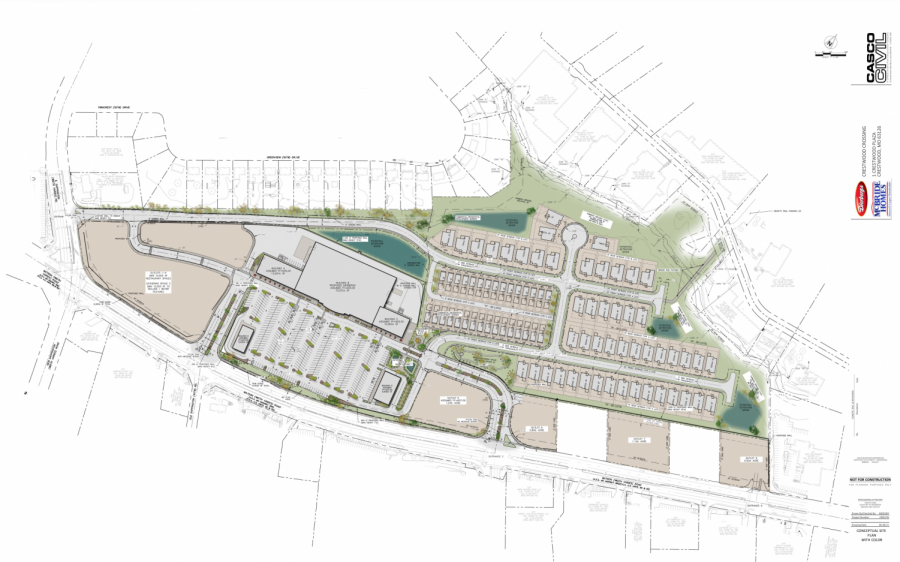The Crestwood Board of Aldermen voted to approve a Community Improvement District for McBride Homes at Crestwood Crossing Aug. 23.
The board received a petition in July from the developer detailing the purpose of the CID and how it would work.
“In short, the district charges homeowners in the bounds of the district an annual assessment, kind of like a homeowners association, the proceeds of which pay off certain improvements constructed within the district,” City Administrator Kris Simpson said.
The petition identifies these improvements as sidewalks, streets, sewers, lighting and more. The district anticipates these costs being just under $2 million dollars, with that amount to be incurred in the next five years and paid back over the next 27 years. It would be governed by a five-member board, with the city retaining one seat.
Each of the three home districts in the site would have different costs based on assessments.
Ernesto Segura, representing the petitioner, said the improvements would likely cost more than the $2 million identified, but excess costs would be paid by the developer.
Katherine Moore, also representing McBride, said there were 600 people on the waiting list for the 81 homes, causing sales to start earlier than expected Aug. 24. Moore explained since the developer is building infrastructure from the ground up, “in one form or another those (costs) get passed on to the customer.”
“So McBride has found in communicating with our customers … that our customers prefer this method of getting reimbursed for those upfront and public infrastructure costs, rather than increasing the costs of the homes,” Moore said.
Moore said if a customer stays in a house for five years, they are only paying for their share of the costs while they are in the home.
Ward 3 Alderman Scott Shipley was skeptical of the CID due to potential tax revenue if it doesn’t pass. He said additional taxes on the prices of the homes rising would bring in around $900,000 in taxes over the next 27 years, as opposed to tax on just the initial price of the home. Shipley said the homeowners would have to reduce mortgage payments, resulting in the city subsidizing them by sacrificing those tax revenues.
“I draw the line that public incentives shouldn’t be used to lower people’s mortgages. It just doesn’t seem like the right use of a CID. It’s not a good deal for Crestwood or the county or Lindbergh or anywhere this tax revenue should go,” Shipley said. “There is no harm to Crestwood if we do not pass this, but to me there is clear harm if we do approve it.”
Ward 4 Alderman Tony Kennedy said he doesn’t believe the improvements would actually increase the cost of the homes, since a home is expected to have working pipes or other amenities when it’s bought.
Mayor Grant Mabie said CIDs are “customary in the region” and in this case the CID won’t be adding taxes to unsuspecting residents, and instead will focus on the homeowners who haven’t even bought homes at the site yet.
“It’s going to be an eyes wide open decision and it’s a business decision if they want to enter this deal with McBride or not,” Mabie said.
The board voted 6-2 to approve the ordinance, with Shipley and Ward 4 Alderman John Sebben voting no.




















